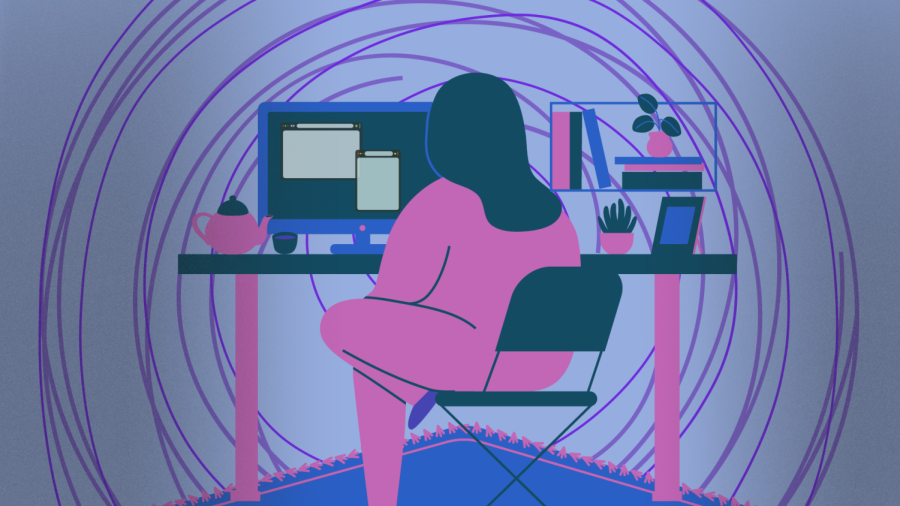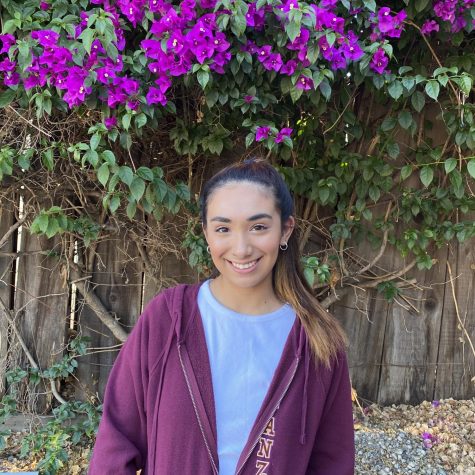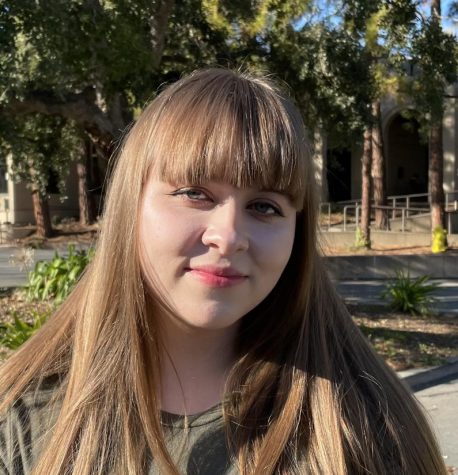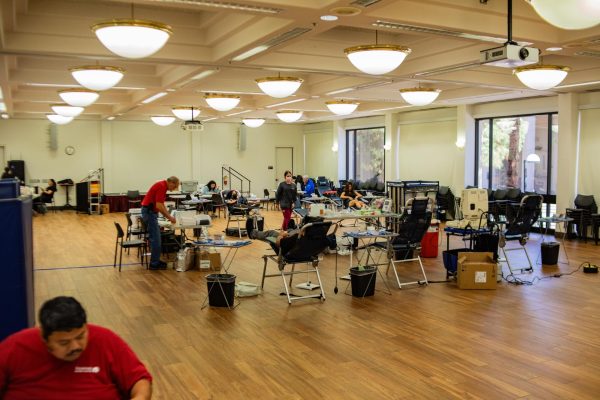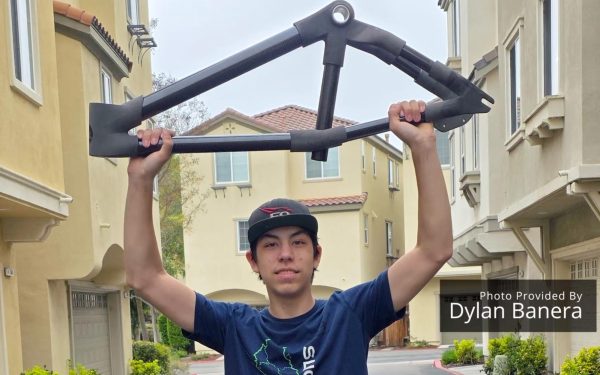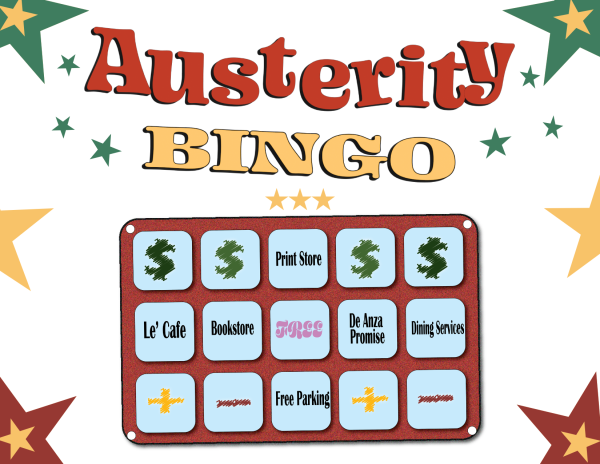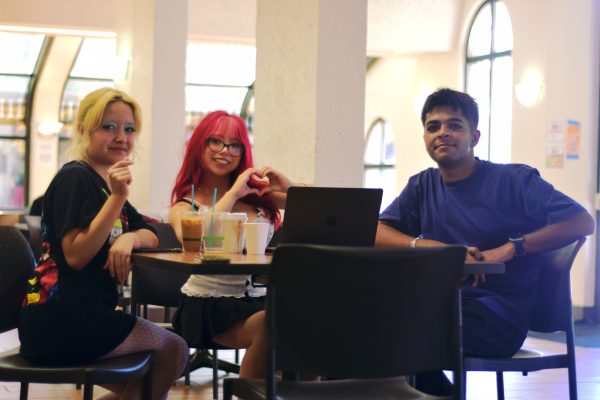A loss of connection and the downside of online learning
When the pandemic hit, millions of students were abruptly shifted to virtual learning. While some embraced the change, many struggled and felt left behind.
June 20, 2022
When catching up with former classmates in the fall of 2020, we would talk about remote learning. Hearing about how much they enjoyed it and how it seemingly provided them with the flexibility to complete their work on their own time, I felt puzzled.
I had a completely different experience.
In the beginning, I thought to myself that it was only a rough patch, but two years later, I still haven’t enjoyed my classes and it has completely affected my performance as a student. All I’ve found online learning to be is a lot less student engagement, prolonged screen time, at-home distractions, and the lack of study space, among many other things today’s De Anza students must navigate.
The stress of online learning has affected my mental health, making personal issues only harder to deal with, resulting in late assignments and my focus on school waning.
The thought of school and learning used to always excite me until my bedroom became the classroom and my bed became the desk. Online learning has completely changed my perspective on academics — and not in a positive way.
I believe that learning in a classroom setting where there are other students around and a professor to answer questions throughout the lecture is the most effective way to learn. It may not be fascinating sitting at a desk for an hour or two straight, but doing so optimizes our academic experience and provides us with the acknowledgment we deserve.
Being on campus often steered me to create a routine that I could sustain. Attending classes at set times and getting to work on assignments at the library right after helped me stay accountable, as they would be due in-person the next day or two.
Another aspect of being on campus that I valued and enhanced my community college experience was having a sense of community. The De Anza community of professors, students and faculty was a big part of my growth as a student and person. I came into school a timid person and I didn’t like putting myself in challenging situations, whether that was public speaking or being in a room with people I didn’t know.
But being in-person made me confront those things, and it gave me the opportunity to have encounters that I no longer get over a Zoom meeting or asynchronous course.
I recently got the chance to attend one of De Anza’s few in-person events. Last week, the Office of Equity held a student-run art exhibition based on the theme of “solidarity.” I was able to meet new students, and to my surprise, I didn’t feel shy or nervous to talk to others as I generally would. People were welcoming, which made me realize I had been longing for that human interaction in an in-person setting.
Discussion posts and breakout rooms could never replicate that experience. Nowadays, we meet more of our professors at set times online and we only talk to other students (barely) when we post on discussion boards at different times of the day.
How can that be good?
I’ve come to understand and experience what isolation can do. It will bleed into every other aspect of a student’s life. I remember hearing about students who used to have a difficult time making friends on campus due to the commuter-nature of the population. Now I worry that online learning has only amplified those anxieties.
We take a course and move on to the next, never fully connecting with anything outside of our bedroom.
Sadly, the majority of my online courses were also only offered asynchronously, which really bummed me out because I had to learn concepts on my own. In contrast to my early college days, for the classes I took synchronously, I remember how we could come together and learn as a group.
It doesn’t feel like anyone else relates to this issue, so I’m writing this in hopes that it reaches others.
Remote learning was a challenge for me, and I hope that any other student that resonates with my experience knows that they are not alone and that their struggles are not entirely on them. Until the college commits to providing an in-person experience, I recommend reaching out to professors outside of their office hours and utilizing the college’s free counseling services. You can still be successful with your education.



